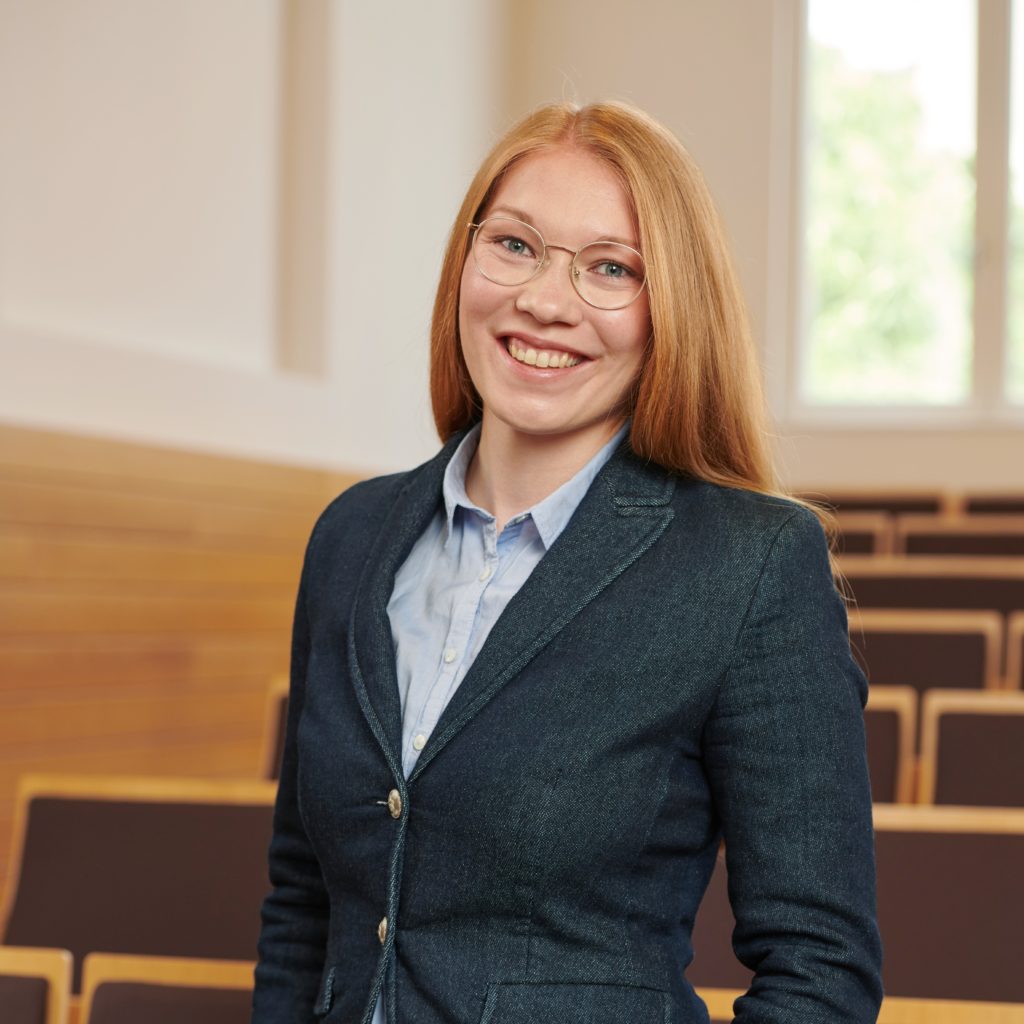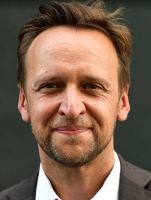- Paul-Ehrlich-Institut
- Chair for Software & Digital Business, Technical University of Darmstadt
- eHealth & Information Systems Africa gGmbH
- European Research Center for Information Systems, University of Münster
- Working Group Interdisciplinary Security Research, Freie Universität Berlin
Paul-Ehrlich-Institut (PEI)
Simon Thimmel works as a project manager at the Paul-Ehrlich-Institut. He coordinates the BISKIT consortium and international partners. Content-wise he works on crisis management strategies and capacity builiding. Before joining the Paul-Ehrlich-Institut, he worked as a researcher and lecturer at the Chair of Business Administration, Public & Nonprofit Management at University of Mannheim in Germany. His dissertation project considers the resilience of organizations in the context of blurring sectoral boundaries between market, state, and third sector. Besides that, his research focused on nonprofit-private partnerships, organizational misconducts, and psychological capital.

Verena Klümpers works as a scientific assessor at the Paul-Ehrlich-Institut and supports the consortium with her expertise regarding blood-related contents. Before the BISKIT project started, she worked at PEI for the Global Health Protection Programme (GHPP) in the so called “BloodTrain”. The GHPP BloodTrain supports African partner countries in developing capacities to improve access to safe blood and blood products for patients. Before joining the PEI, she worked for a blood donation service and was part of the WHO Global Outbreak Alert and Response Network (GOARN) working for the European Mobile Lab (EMLab) in Sierra Leone and Guinea doing diagnostics during the Ebola outbreak.

Chair for Software & Digital Business, Technical University of Darmstadt
Melanie Reuter-Oppermann is a Postdoc within the Information Systems group at the Technical University of Darmstadt, Germany. She holds a PhD in Operations Research from the Karlsruhe Institute of Technology (2017). Her research interests include humanitarian and healthcare logistics, especially emergency medical services, blood logistics and crisis management, machine learning, multicriteria optimization, simulation-based optimization, and design science research.

Helena Müller is a research associate working at the Information Systems group at the Technical University of Darmstadt, Germany. Within the BISKIT project, her research focuses on the design of an user assistance system as well as chatbots as a communication channel for users (especially blood donors and blood services). Before, she studied Industrial Engineering with the technical discipline Electrical Engineering and Information Technology at the Technical University of Darmstadt.

eHealth & Information Systems Africa
Johanna Roegele is the Managing Director of eHealth Africa’s Office in Germany and responsible for creating and driving African-European partnerships and research projects for the organization. She further leads eHA’s Project Management Office to ensure impact and quality across the organization’s portfolio of programs and services. Johanna has a decade of experience working both on the African and the European continent in program design, financing, and benchmarking, monitoring, evaluation and research. She has worked in advisory roles for bilateral agencies such as GIZ or the German Federal Ministry for Economic Cooperation and Development (BMZ) as well as in multilateral contexts such as for the OECD in the education, health, and trade sectors.

Aboubacar Douno is eHealth Africa’s Senior Software Engineering Manager. He leads the organization’s team of software developers to build robust and innovative solutions for public health challenges and emergencies. Douno has a decade of experience in software and web development in the commercial, not-for-profit and public sectors in Europe and Africa. In his home country of Guinea, he started his own agency that consults on web design, technical project management as well as software and IT infrastructure development. He further founded a software development school that has trained hundreds of aspiring Guinean developers.

Francis Ayo works with eHealth Africa as Technical Project Manager on BISKIT (Information System component). He is responsible for using established agile methodologies to elicit requirements and documentation, driving the delivering of work packages and epics, to facilitate UI/UX, architectural and infrastructure designs, and stakeholders engagement. Since 2010, Francis has been working as IT End User Specialist, Software Application Analyst, Scrum Master, and Solutions Delivery Manager. He managed as a servant leader cross functional development teams; facilitating Scrum events to improve go-to-market on varied IT business products and services in the following industries: Telecom, Utility (electricity distribution), and Financial (banking and non-banking).

European Research Center for Information Systems, University of Münster
Prof. Dr.-Ing. Bernd Hellingrath heads the research group Information Systems and Supply Chain Management at Münster University since 2008 and is the academic director of the ERCIS Competence Center for Crisis Management. Prior to his current position, he was department manager at the Fraunhofer Institute for Material Flow and Logistics in Dortmund and professor for Planning and Modeling of Production and Logistics Networks at the University of Paderborn. In 2003, he received the Joseph-von-Fraunhofer-Prize for the software tool “OTDSim” which simulates automotive supply chains. Prof. Hellingrath has been involved in various national and international research programs both as a contributor and as a reviewer.

Adam Widera is the managing director of the ERCIS Competence Center for Crisis Management (crisismanagement.ercis.org) working at the research group for Information Systems & Supply Chain Management at the University of Muenster. Since 2010, Adam has been involved in various research and application projects in close cooperation with different international humanitarian organizations. His main research activities cover the areas of modeling, simulation and performance management in humanitarian logistics as well as the design and evaluation of information systems for humanitarians.

Dennis Horstkemper is a research assistant working at the research group for Information Systems & Supply Chain Management at the University of Muenster. Since 2012, Dennis has been working in multiple international research projects in the areas of Operations Research, Supply Chain Management and Humanitarian Logistics. His main research interest regards production planning architectures in the context of Industry 4.0, particularly focusing on the aspects of complexity management, decentralization, and enterprise architecture management.

Michael Middelhoff is a research assistant working at the research group for Information Systems & Supply Chain Management at the University of Muenster. Since 2012, Michael has been working in multiple international research projects on civil security. His main research interest is supply chain security covering the areas of enterprise architecture management, process modelling and security assessment against theft, smuggling and sabotage in logistical operations.

Working Group for Interdisciplinary Security Research, Freie Universität Berlin
Prof. Dr. Lars Gerhold is professor for interdisciplinary security research at Freie Universität Berlin and head of the Research Forum on Public Safety and Security. Since 2015, he leads the Working Group Interdisciplinary Security Research, supervising various national and international research projects in the field of civil security and disaster preparedness in close cooperation with different project partners. In this capacity he is also leading the BISKIT project. His research and teaching focus is on interdisciplinary security research, security foresight, social change, risk perception and methods of futures sciences. Since 2005 he has been a lecturer at Freie Universität Berlin, firstly at the Institute Futur in the area of futures research, later becoming scientific coordinator of the Research Forum Public Security at the Institute of Computer Science in 2009.

Miriam Nagels is a research associate in the Working Group Interdisciplinary Security Research at Freie Universität Berlin. Her research focus in the BISKIT project is on the analysis of crisis communication with the public and between the different actors involved in crisis management and transformation. She has an academic background in Middle Eastern studies (Freie Universität Berlin and Sabanci University) and International Security and Law (University of Southern Denmark). Previously, she worked with the German Institute for International and Security Affairs (SWP) and the EU Delegation to Rwanda amongst others.

Former project manager BISKIT
Alexander Pinz worked as a project manager at the Paul-Ehrlich-Institut from 2019-2022. During this time, he was responsible for coordinating the the BISKIT consortium. He further managed an e-learning project which has been set up to implement digital capacity building trainings to African partner countries in the Global Health Protection Program (funded by the German Federal Ministry of Health). There, the Paul-Ehrlich-Institut provides regulatory support in the fields of blood transfusion and clinical trials.

